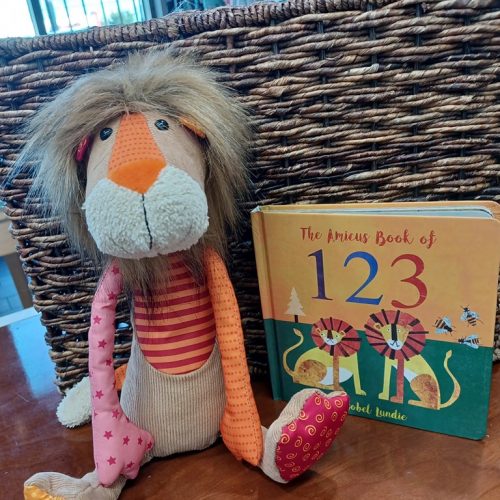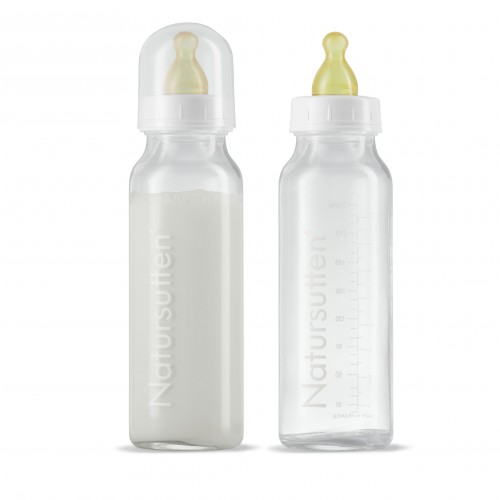Recent research on early brain development and school readiness reveals that the hype about making children smarter by sitting them in front of a screen to watch certain programs is just hype. And despite Sesame Street’s track record for helping 3-5 year olds with letter and number recognition, the same does not seem to hold true for younger kids. In fact, a German study concluded that television viewing in this age group had no positive impact upon children’s brain development at all. Professor Manfred Spitzer of Ulm states that babies who watch television are simply unable to process all the changing images and sounds they see and hear.
Seattle pediatrician Dr. Dimitri Christakis says that even though there’s absolutely no scientific research to support their claims, Einstein and Brainy Baby videos are marketed to conscientious parents who want to promote their child’s cognitive development. Purveyors of these products both explicitly and implicitly claim that they can make children not only smarter, but more musical or more mathematical. Unfortunately, their claims are entirely unsubstantiated. According to Christakis, the best evidence to date suggests the opposite effect: viewing programs on screens before the age of two years is actually harmful, harmful in terms of school readiness and in attentional abilities later in life. And the most harm is done when looking at a screen substitutes for grown-up interaction.
In one experiment, babies aged 9 to 12 months old listened to grown-ups reading to them in Chinese, while the other group watched the same stories on television. The results showed that children who were read to could recognize Chinese sounds in two months, while those who watched television stories did not manage to learn anything. In another research study, families where children were read to quite often, the vocabulary of a child was richer and children knew 8 percent more words than average. In contrast, children who watched baby videos showed 20 percent lower results.
Dr. Anthony Ford-Jones, a pediatrician in Burlington, Ontario said the problem with infants and toddlers watching TV or DVDs is that it’s a passive activity. “It’s very attractive, but it’s probably not as good for the child’s brain as actively doing something and finding their own fun. A child’s mind at the earliest stages works in such an active way. They can be fascinated by things but they’d be better off with a cupboard full of pots and pans than they would be with passive sitting in front of something that looks cute and pretty and colorful and has jingles and nice tunes.”
The one form of stimulation that has been proven to make a difference in promoting brain development is language: talking, reading, singing. Infants and toddlers who are conversed with, read to, and otherwise engaged in lots of verbal interaction show more advanced linguistic skills than children who are not as verbally engaged by their caregivers. This is because language is fundamental to most of the rest of cognitive development. Talking and listening to your child is one of the best ways to make the most of a child’s critical brain-building years.
Developmental experts offer these interactive guidelines:
*Maintain an ongoing conversation with your child about what you and they are doing. Sing to them, play music, tell stories and read books.
*Ask toddlers and preschoolers to guess what will come next in a story. Play word games.
*Ask toddlers and preschoolers questions that require more than a yes or no answer, like “What do you think…?
*Ask children to picture things that have happened in the past or might happen in the future.*Provide reading and writing materials, including crayons and paper, books, magazines, and toys. These are all key pre-reading experiences.

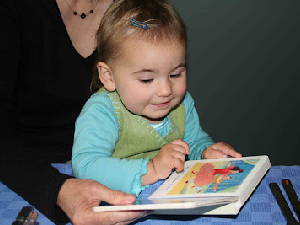

![baby reading[146]](https://www.barefootbabyboutique.com/wp-content/uploads/2023/04/baby-reading146.jpg)


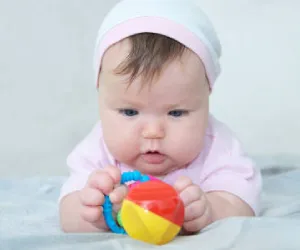


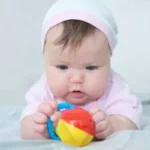
![baby reading[146]](https://www.barefootbabyboutique.com/wp-content/uploads/2023/04/baby-reading146-150x150.jpg)

